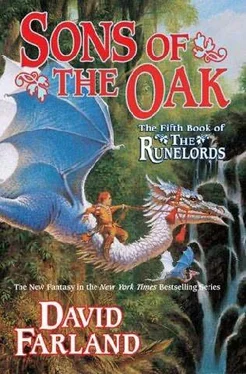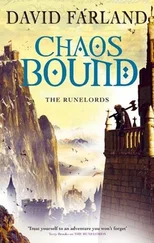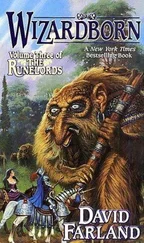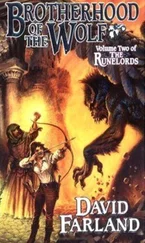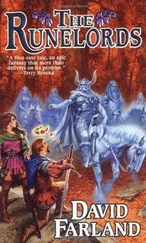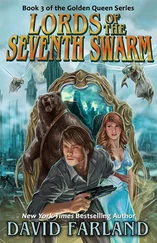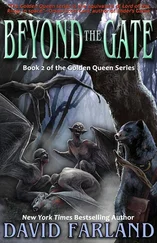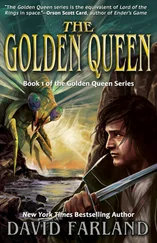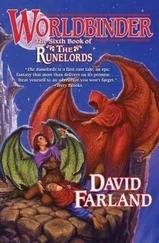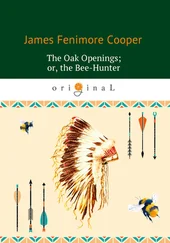David Farland - Sons of the Oak
Здесь есть возможность читать онлайн «David Farland - Sons of the Oak» весь текст электронной книги совершенно бесплатно (целиком полную версию без сокращений). В некоторых случаях можно слушать аудио, скачать через торрент в формате fb2 и присутствует краткое содержание. Жанр: Фэнтези, на английском языке. Описание произведения, (предисловие) а так же отзывы посетителей доступны на портале библиотеки ЛибКат.
- Название:Sons of the Oak
- Автор:
- Жанр:
- Год:неизвестен
- ISBN:нет данных
- Рейтинг книги:5 / 5. Голосов: 1
-
Избранное:Добавить в избранное
- Отзывы:
-
Ваша оценка:
- 100
- 1
- 2
- 3
- 4
- 5
Sons of the Oak: краткое содержание, описание и аннотация
Предлагаем к чтению аннотацию, описание, краткое содержание или предисловие (зависит от того, что написал сам автор книги «Sons of the Oak»). Если вы не нашли необходимую информацию о книге — напишите в комментариях, мы постараемся отыскать её.
Sons of the Oak — читать онлайн бесплатно полную книгу (весь текст) целиком
Ниже представлен текст книги, разбитый по страницам. Система сохранения места последней прочитанной страницы, позволяет с удобством читать онлайн бесплатно книгу «Sons of the Oak», без необходимости каждый раз заново искать на чём Вы остановились. Поставьте закладку, и сможете в любой момент перейти на страницу, на которой закончили чтение.
Интервал:
Закладка:
“Now, me father, he would ’ave told you that them what can’t keep wealth don’t deserve it. It’s like givin’ a monkey a carriage, or a pig a castle. They may enjoy it for a moment, but they ’aven’t the brains or the discipline to hold on to it. And you know why? Because in the end, the ones who own wealth, the ones who keep it, are those that are strong enough, cunnin’ enough, and cruel enough to take it and ’old on for dear life. That’s who the wealth really belongs to.”
Fallion gave him a questioning look. Hearthmaster Waggit had taught that wealth flowed from the creation of goods. But Waggit’s teachings didn’t mesh at all well with what Stalker had to say.
Stalker continued. “Look, it’s like this. A king collects taxes, right? He takes the wealth from his vassals, sends his lords out every autumn to gather in the ’arvest. But did ’e do any work for that? Is ’e the one who milked the cows and turned the milk into butter? Is ’e the one that broke ’is back with a scythe out in the fields, reaping the wheat and grinding it down to meal? Is ’e the one that dug the clay and burned ’is hands when ’e baked the bricks to build a house? No, the king-’e’s just a lord, a man with weapons and an army and the guts to cut down any honest folk what stands up to ’im.”
Fallion understood Stalker’s reasoning, and he could easily argue against it. He could argue that a lord performed services for the taxes that he collected, that he fought and suffered and bled to protect his people, and in doing so, he was partly responsible for creating wealth.
But Fallion knew better. Even as a child he could see the truth, and the truth was that Fallion was raised in comfort, given the best of everything, and he had done nothing to deserve it.
The only difference between Fallion and the utterly impoverished towheaded boys who herded hogs in the hills above Castle Coorm was that Fallion’s family had a history of taking from their vassals, keeping their families in relative poverty while his own family enjoyed the spoils.
Fallion didn’t believe for a minute that he worked harder for his wealth, suffered more, or deserved any better treatment than the peasants who worked the fields. He’d watched the smith’s apprentice, breathing coal-fire at the forge all day, hammering out metal. What a wretched, cramped little life the lad lived.
But Fallion had never worked so hard.
Hearthmaster Waggit had tried to explain the truth away, but Fallion saw behind the lie.
“So, ’ow is a king different from any other thief?” Stalker asked.
“He’s not,” Fallion agreed. “He gives just enough service so that he can tell himself that he’s a good man and get some sleep at night.”
Stalker gave Fallion a long appraising look, as if he’d expected some grand argument.
“That’s a sad truth,” Stalker said. “Them what owns wealth is them what’s strong enough and cunnin’ enough and cruel enough to seize it.” He knelt down so that he could peer Fallion in the eye. “So now I ask: why shouldn’t that someone be you and me?”
So that was the whole of his philosophy, Fallion realized. We are all destined to end up with nothing, so why not grab all that you can for as long as you can?
The notion sickened Fallion. What’s more, he could see that it sickened Captain Stalker, too. He argued, but it was only words coming out of his mouth. His heart wasn’t in it.
“Was your da a pirate?”
Stalker grinned. “No. Now, me grandda was a pirate. But Da, he swabbed another man’s deck.”
Fallion found it intriguing. Stalker was steeped in an evil culture, and Fallion wanted to understand evil, to see the world through the eyes of evil men. He thought that in doing so, he might better understand how to fight a locus. And Stalker was giving him a primer in evil, discussing philosophies that Fallion would never have heard from Hearthmaster Waggit’s tame tongue.
Fallion decided that Stalker was a likable fellow underneath it all. And Fallion knew that sometimes even an honorable man got backed into a corner and had to do things that he didn’t want to. “No. I don’t hate you.”
“Good boy,” the captain said with a grin. “Now go tell Cook to make you some rum puddin’.”
Fallion raced out of the room feeling light of heart, secure in the knowledge that he had made a friend.
24
Every life has value. Some imagine that their life is worth nothing and only discover too late that its worth cannot be measured in coin. Others value their own skins far too highly.
— Gaborn Val OrdenA couple of weeks out from the Courts of Tide, Fallion celebrated his tenth birthday. On that morning, the children spotted a giant tortoise, nearly fifteen feet long, swimming just beneath the waves, its shell a deep forest green, and thus Fallion knew that they were in warmer waters.
Captain Stalker was walking the deck and said, “Down in Cyrma, I saw a ’ouse made out of one of those shells. Big ol’ mother tortoise crawled up on the sand to lay ’er eggs, and some villagers cut ’er throat, cooked up most of ’er insides, and used the shell to make a nice ’ut. She was bigger than that one out in the water, of course.”
“Do you think the water is warm enough for sea serpents?” Jaz asked eagerly.
“Close,” the captain said. “Serpents all ’ead south this time of year. We should come up on ’em soon, if the weather ’olds…” He gave a worried look at the sky. “If the weather ’olds…”
It was late morning, and a thin haze had been building across the heavens all night. Dawn had come red.
The black ship was spotted that afternoon, and the captain came above decks and nursed every stray breath of air into the sails.
A squall rose that evening, driving the ship inland. They’d been sailing well out to sea in order to avoid Inkarran warships, but now they were driven almost to the beach, even when the sails were dropped and the prow turned into the wind.
The captain was forced to drop anchor in the sand, and the Leviathan nearly ran aground.
They hugged the shore all night, and set sail again before dawn, the captain nervously keeping watch for both the Inkarrans and for the ship with the black sails.
For the next few days, Fallion kept busy with his studies-weapons practice by morning, the work of running a smuggler’s ship by day, and his magic by night.
The death of Streben was the topic of conversation for much the first week, but soon it faded from memory, just as the death of Fallion’s mother and father began to fade.
Fallion took Humfrey’s little spear, the polished shaft of a knitting needle with some mallard feathers and horse hair tied to it, and put it in a box under his bed, where he kept the promise locket that showed the image of his mother when she was young and beautiful, and where he kept a gold button like the one on the coat that his father had worn.
That box had become a shrine, a special place for him. Sometimes memories came unbidden to Fallion, like the morning that the cook fixed muffins with dried gooseberries in them, and as Fallion ate, he recalled how much his mother had loved the tart taste of gooseberries, and he’d feel a stab of pain at the memory, deep and bitter.
But he was learning to keep his memories in that box, to take them out only when he wanted.
So the days wore on, blurring into one another the way that the haze blurred with the waterline on warm days, so that one could not see where the haze ended and the sky began.
In three weeks, Rhianna healed enough so that she could join Fallion in weapons practice, and Fallion suddenly found that he had a peer. Until then, he’d always imagined that Talon was the best child-fighter that he’d ever seen. Talon was quick and tenacious. But Rhianna was a little taller than he, and heavier, and she showed a grace, a level of skill, a speed, and a ferocity that Talon didn’t possess.
Читать дальшеИнтервал:
Закладка:
Похожие книги на «Sons of the Oak»
Представляем Вашему вниманию похожие книги на «Sons of the Oak» списком для выбора. Мы отобрали схожую по названию и смыслу литературу в надежде предоставить читателям больше вариантов отыскать новые, интересные, ещё непрочитанные произведения.
Обсуждение, отзывы о книге «Sons of the Oak» и просто собственные мнения читателей. Оставьте ваши комментарии, напишите, что Вы думаете о произведении, его смысле или главных героях. Укажите что конкретно понравилось, а что нет, и почему Вы так считаете.
